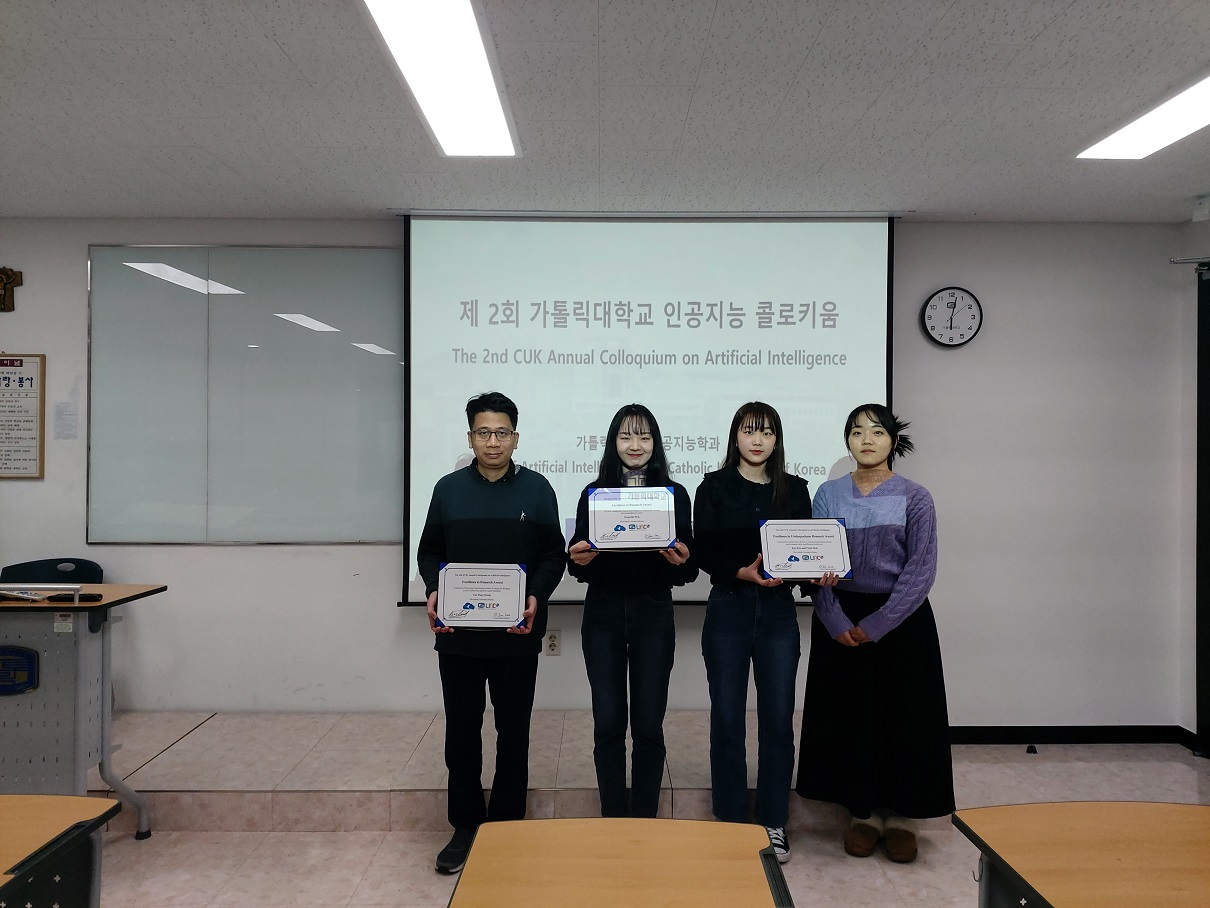The 2nd CUK Annual Colloquium on Artificial Intelligence
(CUK AI Colloquium 2023; 제 2회 가톨릭대학교 인공지능 콜로키움)
Aims and Scope
The CUK Annual Colloquium on Artificial Intelligence is an esteemed workshop series hosted by the Department of Artificial Intelligence at the Catholic University of Korea. This event uniquely gathers both graduate and undergraduate students to showcase their research and engage in meaningful discussions with seasoned experts in the AI field. The 2023 colloquium promises a rich learning experience, featuring keynote speeches and panel discussions covering various topics. These range from career pathways in academia, industry, and entrepreneurship to cutting-edge developments in AI research.
A highlight of the colloquium includes intensive, interactive mentoring sessions. These sessions are designed to facilitate collaborative and constructive dialogues between attendees and senior academic mentors. The focus is on research methodologies, career objectives, and fostering a vibrant, cooperative research community.
Programme in Detail
Keynote Session 1
Prof. Buru Chang, Sogang University, Rep. of Korea
- Topic: Mitigating Hallucination in Multimodal Language Model via Reinforcement Learning
- Abstract: 이미지와 텍스트를 함께처리할 수 있는 Multimodal Language Model이 가진 Hallucination 문제를 완화하기 위한 강화학습 프레임워크를 소개한다.
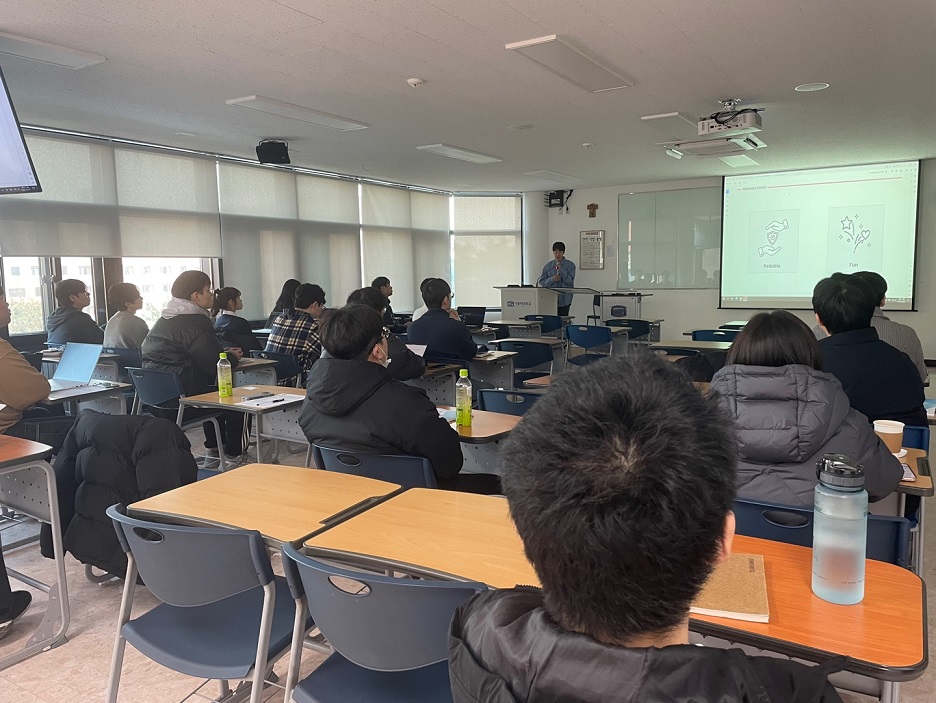
Student Session 1
Hyun-Sik Won, The Catholic University of Korea, Rep. of Korea
- Topic: EXTRA - Integrating External Knowledge into Multimodal Hashtag Recommendation
- Abstract: As microblogs have become commonplace, recommending relevant hashtags for microblog posts has become increasingly important. However, recommending appropriate hashtags for a post is challenging because it requires a high level understanding of the context and relationships of the information in the post. In this paper, we propose a novel hashtag recommendation framework that incorporates external knowledge to enrich the context of posts. Using an image of the post, we obtain the hierarchical external knowledge extracted by the Open Directory Project (ODP)-based classifier. Experimental results show that our framework performs better than the baselines on a multimodal hashtag recommendation benchmark dataset. It outperformed the existing state-of-the-art model by providing a 39.86% increase in the average F1-score.
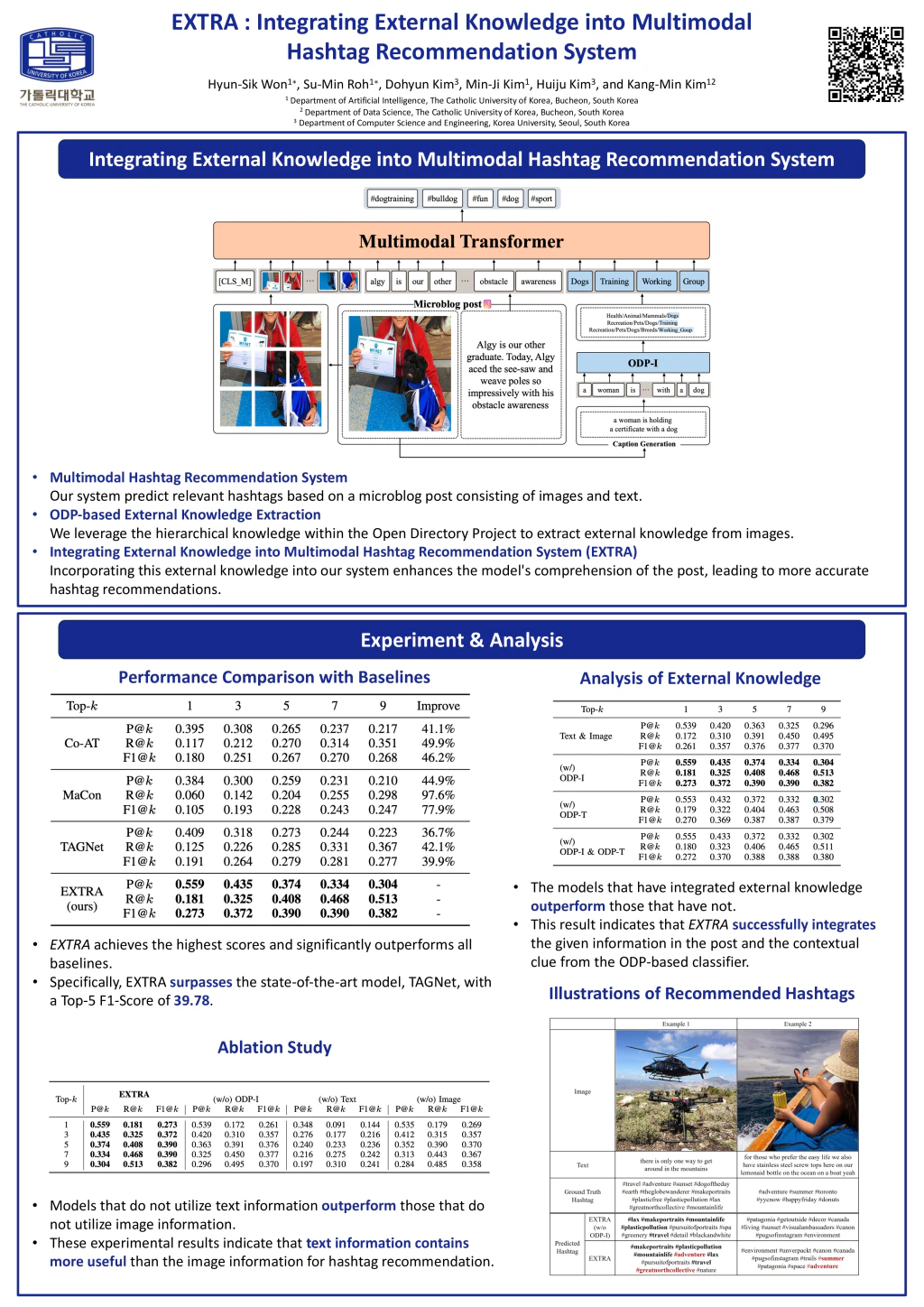
Van Thuy Hoang, The Catholic University of Korea, Rep. of Korea
- Topic: Transitivity-Preserving Graph Representation Learning for Bridging Local Connectivity and Role-based Similarity
- Abstract: We present Unified Graph Transformer Networks (UGT) that effectively integrate local and global structural information into fixed-length vector representations. First, UGT learns local structure by identifying the local substructures and aggregating features of the k-hop neighborhoods of each node. Second, we construct virtual edges, bridging distant nodes with structural similarity to capture the long-range dependencies. Third, UGT learns unified representations through self-attention, encoding structural distance and p-step transition probability between node pairs. Furthermore, we propose a self-supervised learning task that effectively learns transition probability to fuse local and global structural features, which could then be transferred to other downstream tasks. Experimental results on 21 real-world benchmark datasets over various downstream tasks showed that UGT significantly outperformed baselines that consist of state-of-the-art models. In addition, UGT reaches the third-order Weisfeiler-Lehman power to distinguish non-isomorphic graph pairs.
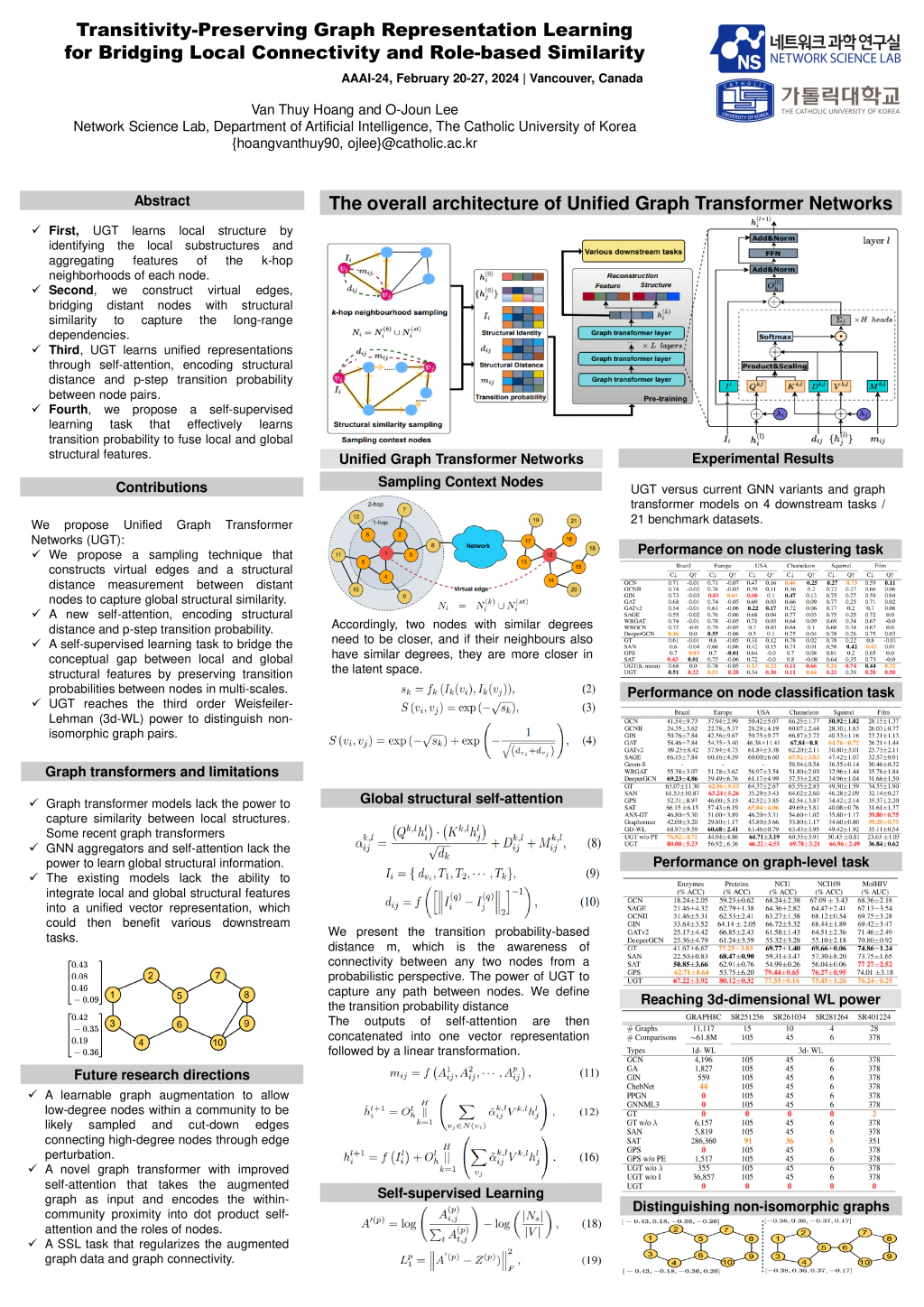
Kyung-Bin Park and Hee-Su An, The Catholic University of Korea, Rep. of Korea
- Topic: 지적장애 아동 대상 생체 신호 측정을 활용한 디지털 평가 프로그램 개발
- Abstract: 해당 연구는 아동의 인지 과제 수행 중에 생체신호를 측정하고 이를 통해 수행자의 지능 점수를 예측하고자 한다. 현재 널리 사용되고 있는 지능 검사를 참고하여 전체 지능 점수와 하위 지표 점수(언어이해, 시공간, 유동추론, 작업기억, 처리속도)를 파악할 수 있는 3가지 task를 제작하였다. 컴퓨터 화면에 제시된 task를 아동이 수행하는 동안 시선 데이터를 측정하고, 수집한 시선 추적 데이터를 통해 사용자의 지능 점수 예측한다. 전체 지능 점수 및 하위 지표 점수를 얻을 수 있기 때문에 개인별 특성을 반영하여 점수를 산출할 수 있다. 이렇게 시선 추적 데이터를 활용하여 아동의 지능 점수를 예측하고, 그 점수를 통해 지적 장애 위험 수준을 판단하여 조기 개입이 이루어지기 위함을 목적으로 한다.
Min-Ji Kim, The Catholic University of Korea, Rep. of Korea
- Topic: Developing Conversational Interface for Food Service Kiosks
- Abstract: The food service industry is increasingly adopting kiosks for order placements, prompting a shift towards AI-driven conversational ordering systems. The challenge lies in efficiently training a single AI model to cater to multiple stores, as training individual models for each store is impractical due to hardware constraints. The proposed solution involves adapting the AI model to the food service domain, generating automated, store-specific datasets, and creating a Group-of-Store-Experts model that integrates multiple store experts into a single base model. This approach enables effective operation across various stores in a low-resource environment. The framework not only addresses the need for a versatile conversational interface for kiosks but also dramatically reduces GPU and memory usage during model inference, achieving an approximate 80% decrease in memory usage.
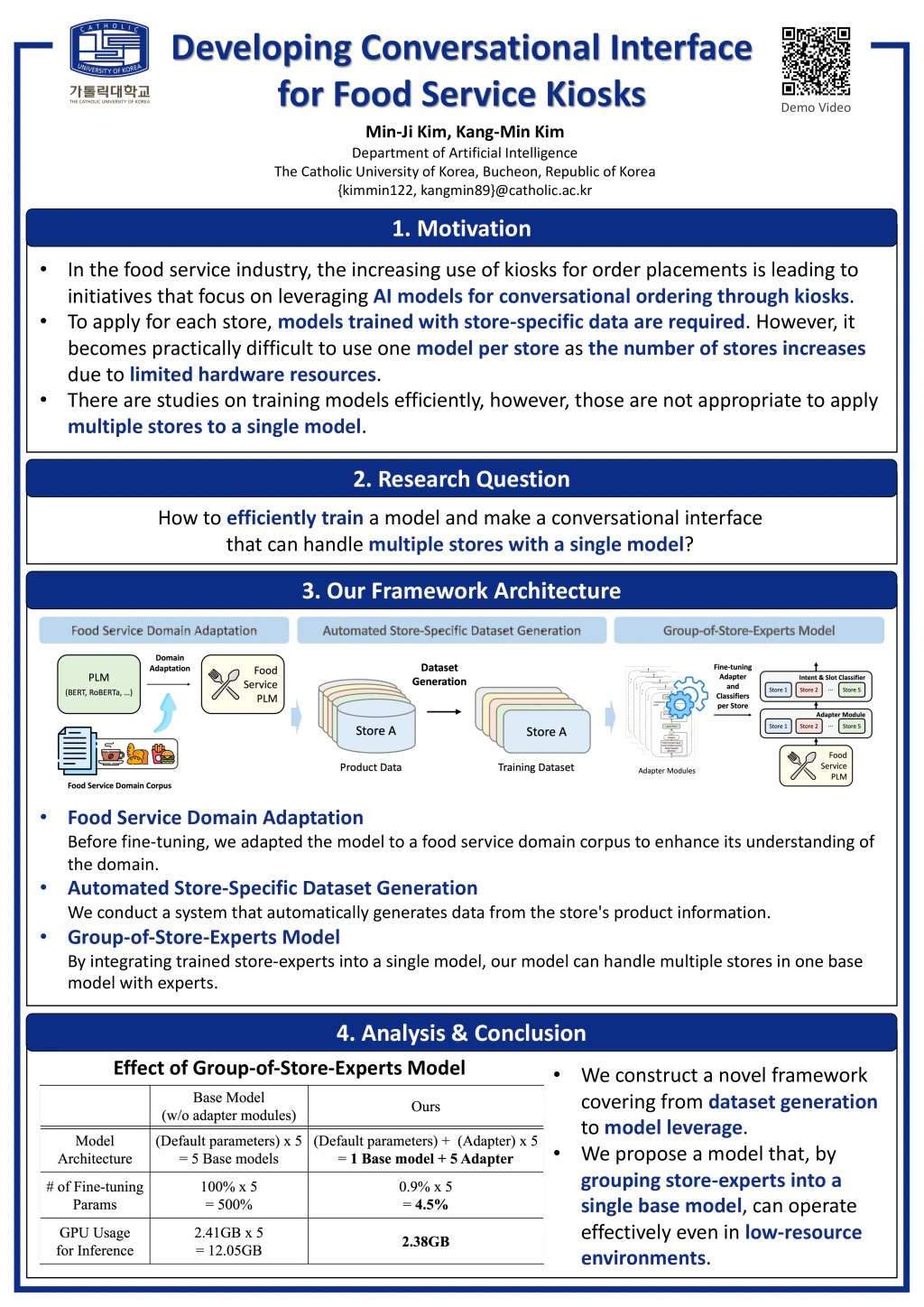
Ray Kim and Yerim Huh, The Catholic University of Korea, Rep. of Korea
- Topic: Using smart wearable ECG devices to develop deep learning-based multi-channel sleep classification technology
- Abstract: In the modern world, many people suffer from sleep deprivation due to stress, study, and work, and with the proliferation of computers and smartphones, sleep quality tends to decline. This has led to an increase in hospital visits for sleep disorders. Sleep has a significant impact on health and quality of life, and to monitor it, multi-channel biosignal-based automatic sleep stage classification devices and methods are being researched. In this paper, we propose a deep learning framework with optimal sleep stage classification performance by utilising ECG, accelerometer and gyro sensors for data-driven interpretation of sleep stages and various sampling techniques.
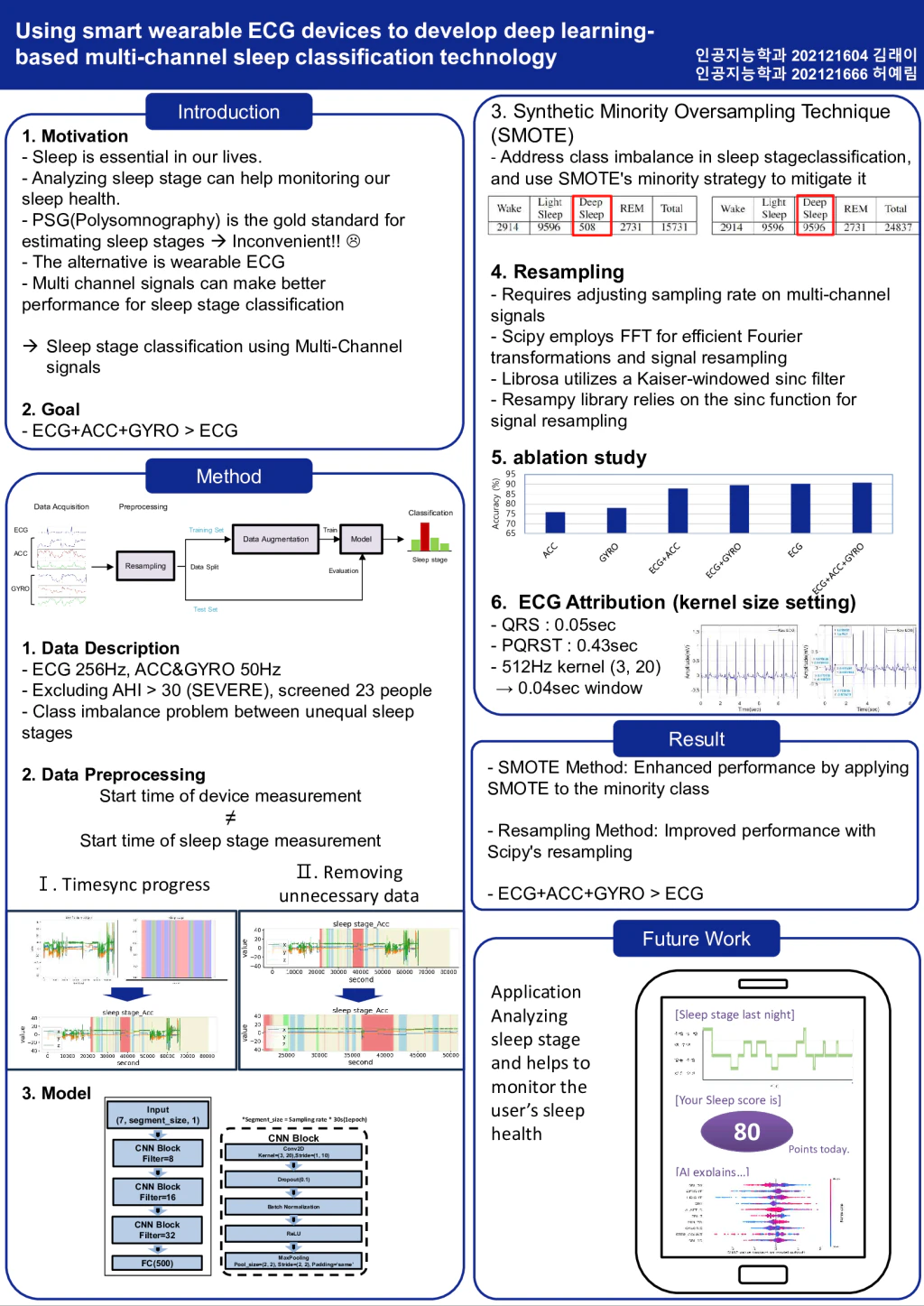
Keynote Session 2
Dr. Kyung-Rae Kim, Samsung Research, Rep. of Korea
- Topic: Audio-Visual Source Separation and Source Localization
- Abstract: To achieve natural and effective human-robot interaction (HRI), robots must utilize various senses to communicate with humans. From this point of view, the robot audition sense has become increasingly important in recent years, and many studies on robot audition sense focus on sound source separation and localization. This seminar will discuss localizing and tracking specific sound sources with audio-visual information.
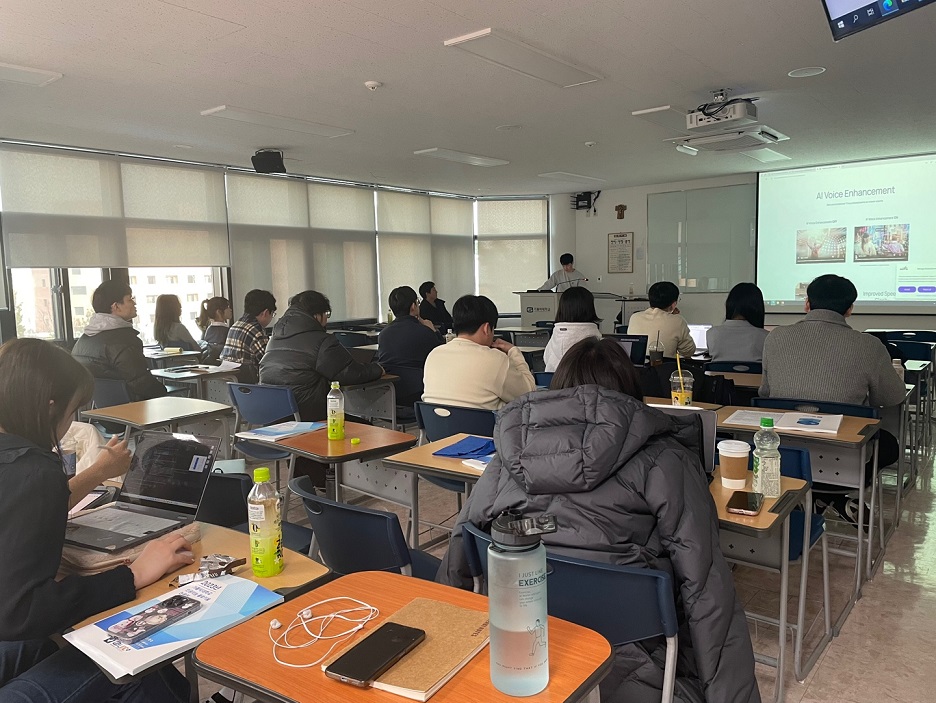
Student Session 2
Jae-Woo Park and Seong-Ho Ahn, The Catholic University of Korea, Rep. of Korea
- Topic: Motor Imagery-based Multi-Modal BCI Framework for Third-Arm Control with EEG and Eye-tracking in a Virtual Reality Environment
- Abstract: We explored the development of a brain-computer interface (BCI) framework integrating EEG and eye-tracking for controlling a virtual third arm, showcasing potential applications in immersive virtual reality settings.
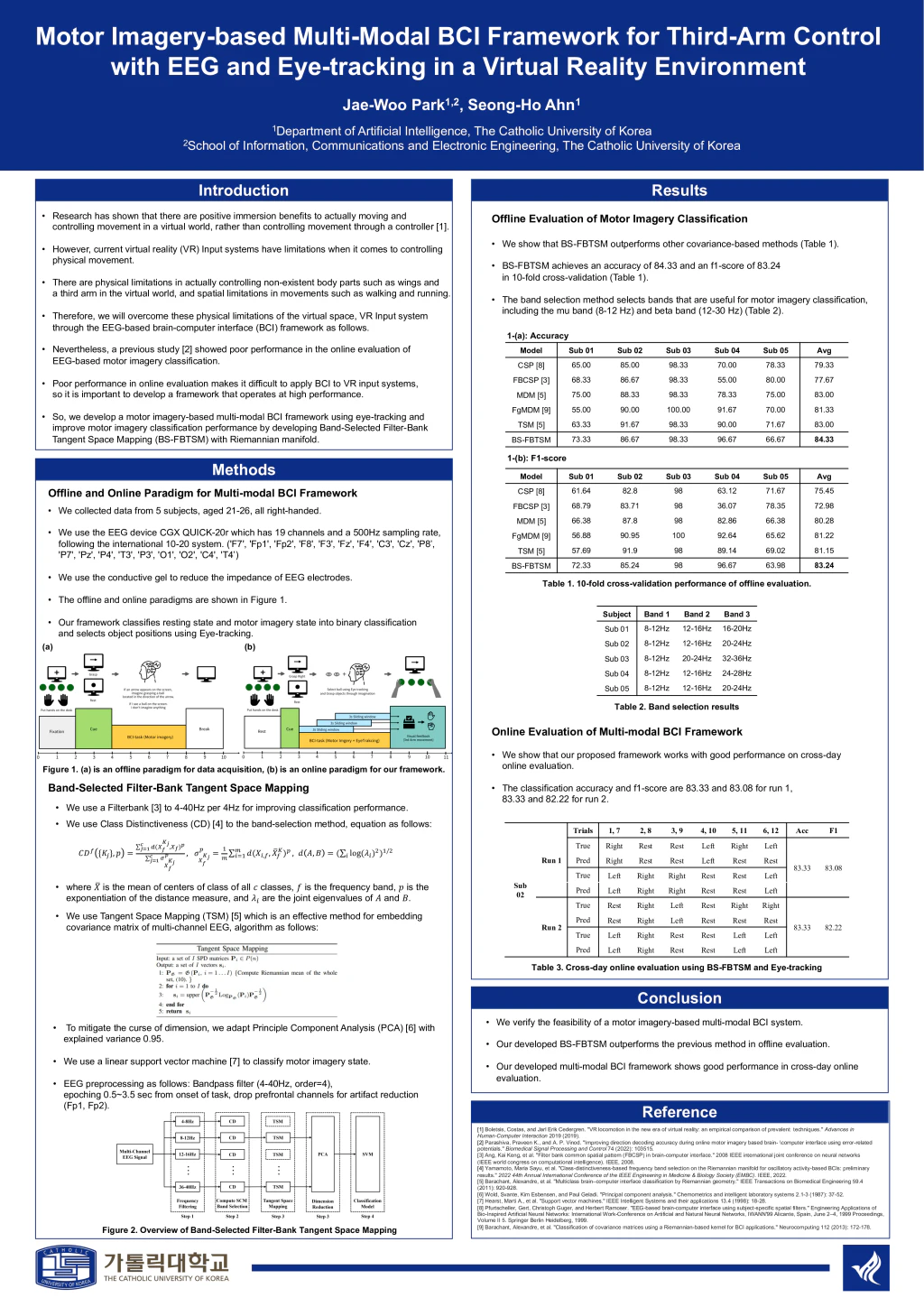
Sanguk Hwang, The Catholic University of Korea, Rep. of Korea
- Topic: Fit Highly Oscillatory Data with ODEs based on Neural
- Abstract: I studied the application of neural ordinary differential equations (ODEs) in modeling highly oscillatory data, demonstrating their efficacy in complex data analysis scenarios.
Namrah Zaman, The Catholic University of Korea, Rep. of Korea
- Topic: PETIS - Intent Classification and Slot Filling for Pet Care Services
- Abstract: PETIS is a groundbreaking dataset and framework for conversational pet care services. It tackles challenges in intent classification, slot filling, and symptom matching, offering a benchmark for research and education. The Adapter Fusion-based framework efficiently handles these tasks, providing a valuable resource for advancing pet care technology.
Jinming Gao, The Catholic University of Korea, Rep. of Korea
- Topic: Investigation in DF-VO(Depth Flow-Visual Odometry)
- Abstract: This semester I mainly studied the visual odometry system. This system mainly consists of three parts: geometry, feature point matching, and tracking. DF-VO adds Depth and Flow parts to the basic visual odometry to enhance the robustness of the visual odometry.The depth model consists of a resnet encoder and a decoder, and the decoder uses bilinear interpolation. The flow model is improved from the flownet model, and SSIM benchmark is added based on flownet.
Gui Xin Wu, The Catholic University of Korea, Rep. of Korea
- Topic: Research on Anomaly Detection
- Abstract: This semester I learned the basics related to artificial intelligence and also studied OmniAnomaly in the field of anomaly detection.OmniAnomaly is a robust stochastic recurrent neural network proposed for anomaly detection in complex multivariate time series data from industry devices like servers and spacecraft.
Yanjun Wu, The Catholic University of Korea, Rep. of Korea
- Topic: Researching HAM10000 Classification and Dependency Structures
- Abstract: I investigated the classification and analysis of the HAM10000 dataset, focusing on identifying dependency structures in skin lesion images, contributing to advancements in medical image analysis.
Keynote Session 3
Dr. Jaehwan Jahng, Kasan IP, Rep. of Korea
- Topic: 연구자가 알아야 할 특허 제도: 좋은 논문과 좋은 특허
- Abstract: 연구 성과를 제도적으로 보호받기 위해서는 논문 또는 학회를 통한 발표뿐만 아니라 특허 출원도 진행되어야 한다. 한편, 논문의 경우는 연구가 완성될 것을 요구하지만, 특허의 경우 당장 결과가 완성되지 않았더라도, 실현 가능성이 있는 아이디어만 있다면 출원할 수 있다. 그리고, 특허 제도의 특성상 소위 “좋은 논문”을 위한 연구를 할 때 주안점을 두어야 하는 부분과, “좋은 특허”를 위한 아이디어를 낼 때 주안점을 두어야 하는 부분은 다르다. 이번 강의에서는 특허 제도에 대한 간단한 소개와 함께, 논문을 위한 연구를 특허 출원으로 이어나가고자 할 때 유의해야 할 점들, 특히 인공지능 분야에서 학술적으로 좋은 연구 결과와 특허적으로 좋은 아이디어의 공통점과 차이점을 살펴보고자 한다.
Exellence in Research (EiR) Awards
The CUK Annual Colloquium on Artificial Intelligence acknowledges the exceptional research achievements within the Department of Artificial Intelligence at the Catholic University of Korea. The department awards the Excellence in Research (EiR) Awards to students demonstrating outstanding research performance both qualitatively and quantitatively. This year’s recipients are:
- Excellence in Research (EiR) Awards
- Van Thuy Hoang (Ph.D. Course)
- Min-Ji Kim (Master’s Course)
- Excellence in Undergraduate Research (EiR) Awards
- Ray Kim and Yerim Huh (Undergraduate Course)
